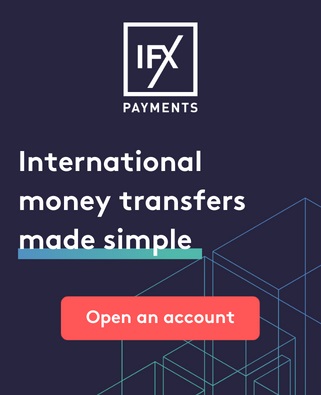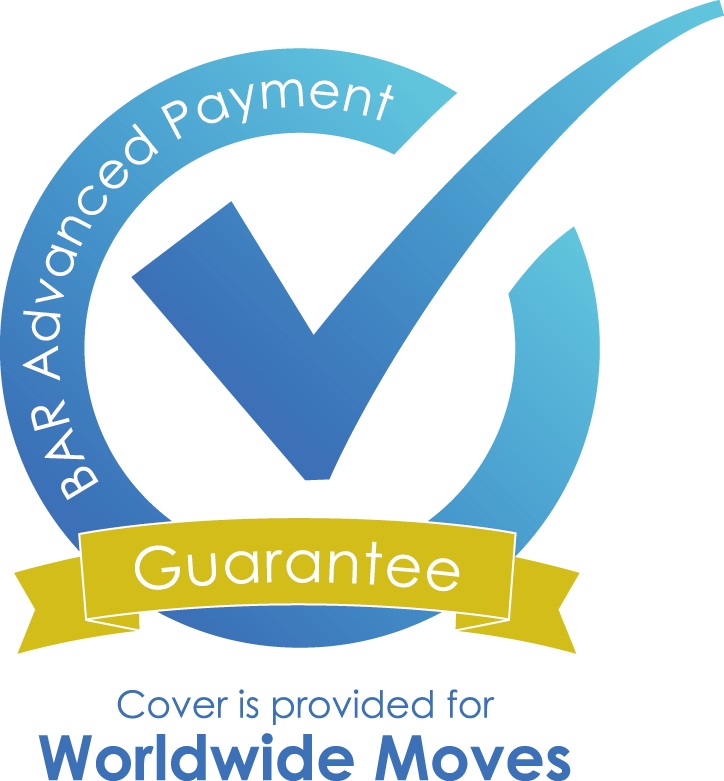Moving To South Korea From The UK
Moving to South Korea
If you’re moving to South Korea, Britannia will be able to help you through each stage of the process. Whether you’re moving to one of the big cities like Seoul or Busan, or the more rural areas we have all the local knowledge to meet your needs and requirements.
Importing Personal Effects to South KoreaSouth Korea in general allows duty-free import of effects within 6 months of the owner’s arrival. However, certain items are dutiable including but not restricted to new goods, electrical items owned less than 6 months, cars and second quantities of items such as TVs, golf clubs etc. Your local Britannia Member will be able to provide you with up-to-date details of these items. All shipments are subject to open customs inspection, and the owner must be in the country prior to the arrival of the effects. |
|
South Korea Customs Prohibitions and RestrictionsIn general, it is in your interest not to import the following items:
|
|
Transit Times to South KoreaExclusive containers take on average 6-7 weeks door to door. Less than container loads will take around 8-10 weeks. |
|
Protecting Your Items for Transport to South KoreaAll groupage consignments will be barcoded before they are loaded into the shipping container. This will ensure that no items are left at origin. |
|
Moving to South Korea with PetsBritannia can recommend a specialised shipper of animals to assist you in sending your family pet(s) from home to home. They will coordinate all documentation and necessary veterinary procedures. Find out more about pet transport. |
|
Importing Motor Vehicles to South KoreaImportation of motor vehicles to South Korea will be subject to compliance, and it is probable that duty and tax will apply. |
|
South Korea Currency TransferWhen you are making international payments for individuals you can benefit from IFX expertise in seeking the best possible rate, whether you are sending or receiving foreign currency. IFX can help to protect you from exchange rate fluctuations and save you time and money on international payments. IFX offers:
You can find out more info on the IFX website. |
Moving to South Korea with Britannia
Your Move to South Korea with Britannia – Britannia has a dedicated network of removers who will assist you with moving to South Korea. We provide computer tracking and barcoding for groupage consignments, to ensure a safe and reliable shipping service to South Korea. Your household goods can be transported to South Korea by land, in sea containers or by air. We can also provide packing and a full door to door service to South Korea.
Additional Removal Services – Britannia can provide a variety of additional services when moving to South Korea. We are authorised to provide a comprehensive insurance, can arrange storage prior to delivery, and can also take care of your pet transport.
If you are interested in moving to South Korea, you can request a quote, read more about our international removals and additional moving services, or contact us for more information on 0845 6006661 or email sales@britannia-movers.co.uk.
Living in South Korea
Living in South Korea offers a unique blend of modern convenience, rich cultural heritage, and natural beauty. The country is known for its efficient public transport, cutting-edge technology, and vibrant cities, making it an attractive destination for expats from around the world.
South Korea has a population of around 50 million, of which 10 million live in the capital city, Seoul. It is in the top 12 largest economies in the world and in the top 12 largest exporters of goods in the world. During the international financial crisis of the late 2000s South Korea was one of the few developed nations not to slip into recession.
South Korea is a highly developed nation, boasting a high standard of living and excellent healthcare, education, and safety. Major cities like Seoul, Busan, and Incheon are vibrant and busy, offering a mix of traditional palaces, modern skyscrapers, and plenty of shopping, dining, and entertainment options. Despite the fast-paced lifestyle, South Korea maintains a strong sense of tradition, with festivals, tea ceremonies, and local crafts continuing to be important parts of daily life.
Food is an integral part of life in South Korea, and the country’s diverse cuisine offers something for everyone. From savoury street food like tteokbokki (spicy rice cakes) and hotteok (sweet pancakes) to home-cooked meals featuring rice, vegetables, and grilled meats, South Korean food is both delicious and varied. Many expats also enjoy the vibrant café culture and the growing presence of international food chains.
South Korea Visas
If you’re moving to South Korea, you’ll need to obtain the appropriate visa, whether you are relocating for work, study, or other purposes. South Korea offers a variety of visa types, each designed for different needs and circumstances.
For those looking to work in South Korea, the E-7 Visa is the most common work visa. This visa is designed for skilled professionals in various fields, such as technology, engineering, research, and more. To qualify for the E-7 Visa, applicants must have a job offer from a South Korean employer who will act as a sponsor for the visa application. The position must require specific expertise, and so you’ll typically need to have relevant qualifications or experience in your field. The E-7 Visa is usually granted for one to two years, with the option for renewal, and is suitable for both short-term and long-term employment in South Korea. Depending on the specific job and industry, additional requirements may include language proficiency, proof of educational qualifications, and work experience.
Visa applications require various documents such as proof of employment or admission to an educational institution, medical checks, financial documents, and sometimes criminal background checks. It is important to check the specific requirements for the type of visa you are applying for.
Visa requirements can be complex and there are many different types. So, it is advised you consult with the South Korean embassy or consulate in your home country or hire a professional service to help navigate the process and ensure you have the proper documents needed for your stay.
Working in South Korea
South Korea offers a dynamic and fast-paced work environment, particularly in industries like technology, engineering, finance, and education. The country’s economy is one of the largest in Asia, and it has developed into a global leader in sectors such as electronics, automotive, and digital technology. Many international companies have set up operations in South Korea, providing many career opportunities for skilled professionals.
English-speaking professionals are in high demand, particularly in the fields of IT, finance, and education. Teaching English, either in schools or private language institutes, is a popular option for many expats, but there are also opportunities for those in other industries. South Korea’s growing tech industry, which includes global giants like Samsung and LG, attracts experts in software development, engineering, and digital marketing.
The work culture in South Korea is known for its discipline and strong emphasis on hierarchy and respect. Punctuality, dedication, and hard work are highly valued, and employees are expected to work long hours. However, in recent years, there has been a shift towards improving work-life balance, with more companies offering flexible working arrangements and initiatives to reduce working hours.
Cost of Living in South Korea
The cost of living can vary depending on where you choose to live, but overall, South Korea offers affordable living compared to many Western countries. Housing in major cities can be pricey, but there are various options, from traditional “hanok” houses to modern apartments. Many expats find accommodation in apartments that range from compact studio flats to larger family homes, which are often in high-rise buildings that offer convenient facilities.
According to Numbeo, the cost of living in South Korea is just 2% lower than in the UK, not including rent costs. However, rent alone is 48% lower in South Korea than in the UK, which is a huge difference. The average monthly salary is also lower in South Korea, with a 25% difference.
You can check out some of the items you are likely to purchase regularly whilst living in South Korea below. Prices are shown in South Korean Won and converted to UK pounds alongside the price in the UK so you can see how costs match up.
| Item | Price in Malaysia | Price in UK |
| Milk (1l) | ₩2,950.85 £1.62 |
₩2,259.02 £1.24 |
| Loaf of white bread | ₩4,242.18 £2.31 |
₩2,249.99 £1.24 |
| Eggs (12) | ₩4,205.36 £2.31 |
₩5,379.77
£2.96 |
| Bananas (1kg) | ₩4,695.37 £2.58 |
₩2,150.43
£1.18 |
| Chicken breasts (1kg) | ₩12,627.14 £6.94 |
₩12,063.26 £6.63 |
| Bottle of water (1.5l) | ₩1,587.99 £0.87 |
₩2,018.45 £1.11 |
| Pair of quality jeans | ₩80,772.24 £44.39 |
₩117,432.20 £64.54 |
| Chain store dress | ₩64,592.12 £35.50 |
₩58,668.63 £32.24 |
| Mid-range trainers | ₩113,933.34 £62.61 |
₩135,641.37 £74.54 |
| Cinema ticket | ₩15,000.00 £8.24 |
₩18,196.10 £10.00 |
| Fitness Club Fees (1 month) | ₩69,089.83 £37.97 |
₩60,953.45 £33.50 |
Interesting facts about South Korea
- The Korean Demilitarized Zone (DMZ) is a strip of land that separates North and South Korea and is one of the most heavily fortified borders in the world. The two countries are technically still at war as they have never signed an official peace treaty since fighting broke out in the 1950s.
- South Korea’s educational system is one of the most advanced in the world and the country was the first in the world to introduce fibre optic broadband to each of its primary schools.
- South Korea is a global leader in the fashion and beauty industries, with Korean beauty products, known for their innovative formulas and packaging, being widely popular worldwide. Seoul is also considered one of the fashion capitals of Asia.
- South Korea boasts the fastest internet speeds in the world, with most of the population having access to ultra-high-speed broadband. This has helped fuel the country’s tech and gaming industries.
- It’s not uncommon for restaurants, bars and shops to stay open till past 11pm or later.
- The number ‘4’ is considered to be extremely unlucky in South Korea. Many locals are so superstitious about the number that most buildings don’t actually have a fourth floor.
- Writing someone’s name in red ink is considered to be very bad form by most South Koreans as it symbolises that the person is going to die or is already dead.
Choose Britannia for Your South Korea Relocation
If you are thinking about moving to South Korea and want to find out more about our international removal services or request a quote, you can call us on 0845 6006661 or email sales@britannia-movers.co.uk. Our team will be happy to discuss how we can help you with your international relocation.








